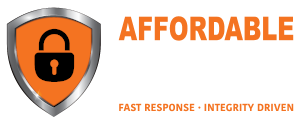The COVID-19 pandemic accelerated the shift towards remote work, transforming the way businesses operate and highlighting the critical role of Information Technology (IT) in supporting distributed teams. As we navigate the future of remote work, IT departments face unique challenges in ensuring the security, connectivity, and productivity of remote workforce environments. In this blog post, we’ll explore the challenges facing remote work IT and discuss potential solutions to address them.
Challenges in Remote Work IT:
-
Security Risks:
With employees accessing company resources from various locations and devices, remote work environments present increased security risks. Threat actors may exploit vulnerabilities in home networks, unsecured devices, and remote access tools to gain unauthorized access to sensitive data.
-
Network Connectivity:
Inconsistent internet connectivity and bandwidth limitations can hinder productivity and collaboration for remote workers. Network latency, packet loss, and congestion may impact the performance of real-time communication tools, file sharing applications, and cloud-based services.
-
Device Management:
Managing a diverse array of devices used by remote workers, including laptops, smartphones, and tablets, presents logistical challenges for IT departments. Ensuring device security, compliance with corporate policies, and timely software updates becomes more complex in remote work environments.
-
Collaboration and Communication:
Remote teams rely heavily on collaboration tools such as video conferencing, messaging platforms, and project management software to stay connected and productive. However, choosing the right tools, ensuring compatibility, and addressing user adoption challenges can be daunting for IT administrators.
-
Data Privacy and Compliance:
Maintaining data privacy and compliance with regulatory requirements, such as GDPR and HIPAA, becomes increasingly challenging in remote work settings. IT departments must implement robust data protection measures, secure remote access methods, and enforce compliance policies to safeguard sensitive information.
Solutions for Remote Work IT:
-
Zero Trust Security Model:
Adopt a Zero Trust security approach that assumes zero trust for both internal and external network traffic. Implement multi-factor authentication, encryption, network segmentation, and continuous monitoring to authenticate users and devices and enforce strict access controls.
-
Cloud-based Security Solutions:
Leverage cloud-based security solutions, such as Secure Access Service Edge (SASE) platforms, to provide comprehensive security services, including secure web gateways, firewall as a service, and cloud access security brokers (CASB). These solutions offer centralized security management and scalability for remote work environments.
-
SD-WAN Technology:
Deploy Software-Defined Wide Area Network (SD-WAN) technology to optimize network performance and reliability for remote workers. SD-WAN solutions provide dynamic traffic routing, Quality of Service (QoS) prioritization, and WAN optimization capabilities to improve connectivity and reduce latency.
-
Unified Endpoint Management (UEM):
Implement Unified Endpoint Management (UEM) solutions to streamline device provisioning, configuration, and security management for remote endpoints. UEM platforms offer centralized management of devices, applications, and security policies, simplifying IT administration and ensuring compliance.
-
Collaboration and Productivity Tools:
Invest in integrated collaboration and productivity tools that support remote teamwork and communication. Choose platforms that offer seamless integration with existing IT infrastructure, intuitive user interfaces, and robust security features to enhance collaboration without compromising data security.
-
Employee Training and Awareness:
Provide comprehensive training and awareness programs to educate remote workers about cybersecurity best practices, data privacy policies, and compliance requirements. Empower employees to recognize and report security threats, phishing attempts, and suspicious activities to mitigate risks effectively.
As the future of remote work unfolds, IT departments must adapt to meet the evolving needs and challenges of distributed workforce environments. By implementing robust security measures, optimizing network connectivity, streamlining device management, leveraging cloud-based solutions, and fostering a culture of collaboration and awareness, organizations can navigate the complexities of remote work IT and support a productive and secure remote workforce. Embracing innovation, flexibility, and resilience will be key to unlocking the full potential of remote work in the years to come.






